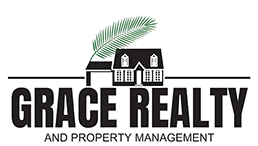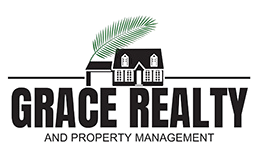If you’ve ever dreamed of building wealth, earning passive income, or creating financial freedom, real estate investing is one of the most proven paths to get there. But while real estate can deliver incredible returns, it also comes with risks — especially if you jump in without a plan.
Whether you’re a first-time investor or someone looking to grow your portfolio, this guide will walk you through how to start investing in real estate the smart way — step by step.
🧭 1. Understand Why Real Estate Is a Powerful Investment
Real estate is one of the few investment options that offers both income and appreciation. Here’s why smart investors love it:
- Tangible Asset: Unlike stocks, real estate is a physical property you can see and improve.
- Cash Flow: Rental properties can provide consistent monthly income.
- Appreciation: Over time, property values tend to rise — especially in growing markets.
- Leverage: You can use other people’s money (a mortgage) to buy and control valuable assets.
- Tax Advantages: Deductions for mortgage interest, property taxes, depreciation, and expenses can significantly reduce your taxable income.
💡 2. Define Your Investment Goals
Before buying anything, get clear on why you want to invest. Your strategy will depend on your goals:
- Cash Flow: Do you want monthly rental income?
- Appreciation: Are you more focused on long-term value growth?
- Retirement Planning: Are you building a passive income stream for your future?
- Diversification: Are you adding real estate to balance your stock or business investments?
Once you know your “why,” it’s easier to choose the right type of property and financing strategy.
🏘️ 3. Learn the Different Types of Real Estate Investments
There’s no single way to invest in real estate — and not all require you to be a landlord. Here are the main types:
a. Residential Rentals
Single-family homes, condos, or small multifamily buildings that you rent out for steady monthly income.
b. House Flipping
Buying undervalued properties, renovating them, and selling for a profit. Higher risk, but potentially faster returns.
c. Short-Term Rentals
Vacation homes or Airbnb-style rentals that can earn more per night but require more management.
d. Commercial Properties
Office buildings, retail spaces, or warehouses that generate income from business tenants. Usually larger investments with longer leases.
e. Real Estate Investment Trusts (REITs)
If you prefer a hands-off approach, REITs let you invest in real estate through the stock market — no maintenance or tenants needed.
🧮 4. Know Your Budget and Financing Options
Smart investing starts with knowing what you can afford — not just what a bank says you can borrow.
Common ways to finance your first investment:
- Conventional Mortgage: Similar to a home loan but typically requires 20–25% down.
- FHA or VA Loans: Great if you plan to live in one unit and rent out the others.
- Private or Hard Money Lenders: Fast approval, ideal for flips, but higher interest.
- Partnerships: Split the investment and profits with another investor.
- Cash Purchase: No interest payments, but less leverage and slower portfolio growth.
Pro Tip: Always factor in closing costs, maintenance, insurance, property taxes, and potential vacancies when calculating returns.
🔍 5. Research the Right Market and Location
Even a great property can underperform in the wrong location. Look for areas with:
- Population and job growth
- Low crime rates
- Strong rental demand
- Good schools and amenities
- Future development or infrastructure projects
Don’t chase the cheapest homes — look for value, not just price. A mid-range property in a growing neighborhood often outperforms a low-cost property in a stagnant area.
🧱 6. Start Small and Build Experience
You don’t need to buy a 10-unit apartment building right away. Many successful investors start with one single-family rental or duplex.
Starting small lets you:
- Learn property management firsthand
- Understand cash flow and expenses
- Build equity you can later use to buy more properties
As your knowledge and confidence grow, you can scale up your portfolio smartly and sustainably.
🛠️ 7. Run the Numbers Before You Buy
Never buy based on emotion — buy based on math. A smart investor knows exactly what kind of return to expect before making an offer.
Key metrics to analyze:
- Cash Flow: Monthly rent minus expenses and mortgage payments.
- Cap Rate (Capitalization Rate): Annual net income ÷ property price.
- Cash-on-Cash Return: Annual cash income ÷ total cash invested.
- Appreciation Potential: Historical price trends in the area.
Use a spreadsheet or online calculator to make sure the deal makes financial sense before signing anything.
🧰 8. Build Your Real Estate Team
Real estate is a team sport. The right people make all the difference.
Your core team should include:
- A licensed real estate agent experienced with investors
- A mortgage broker or lender who understands investment loans
- A property manager (if you don’t want to manage tenants yourself)
- A contractor or handyman for repairs and renovations
- A real estate attorney to protect your interests
Networking with other investors can also help you find off-market deals and reliable professionals.
💼 9. Manage Your Investment Like a Business
Once you own property, treat it like a business — because it is one.
- Keep detailed records of income and expenses.
- Use property management software to track rent and maintenance.
- Screen tenants carefully to avoid costly evictions.
- Set aside reserves for repairs, taxes, and unexpected costs.
Consistency and organization are the foundation of long-term success.
🚀 10. Keep Learning and Stay Patient
Real estate isn’t a get-rich-quick game — it’s a wealth-building strategy.
Markets go up and down, but over time, well-managed properties tend to appreciate and generate income.
Keep learning through:
- Books and podcasts
- Local real estate investor meetups
- Online communities and forums
- Mentorship or coaching
The smarter you become, the better your decisions — and returns — will be.
Frequently Asked Questions (FAQ)
1. How much money do I need to start investing in real estate?
It depends on the market and property type. Many investors start with as little as $20,000–$50,000 for a down payment on a small rental property. Others begin with REITs or partnerships requiring even less.
2. What’s the biggest mistake new investors make?
Jumping in without doing the math or due diligence. Overpaying for a property, ignoring repair costs, or underestimating vacancies can quickly wipe out profits.
3. Is it better to invest in residential or commercial property first?
For beginners, residential real estate is usually easier to understand, finance, and manage. Once you gain experience, you can diversify into commercial properties.
4. Can I invest in real estate if I have a full-time job?
Absolutely. Many investors start part-time. With good property management and organization, you can successfully manage your investments while working another job.
5. How long does it take to make money from real estate?
It varies. Rental income starts as soon as your property is occupied, but long-term wealth builds over years of appreciation, debt payoff, and reinvestment.
Final Thoughts
Starting your real estate investment journey can feel overwhelming at first, but the key is to start smart, small, and strategic. Focus on education, solid numbers, and long-term goals — not quick wins.
Remember, every experienced investor started with their first property. Take the time to plan, build your team, and invest wisely — and you’ll be well on your way to creating lasting wealth through real estate.






